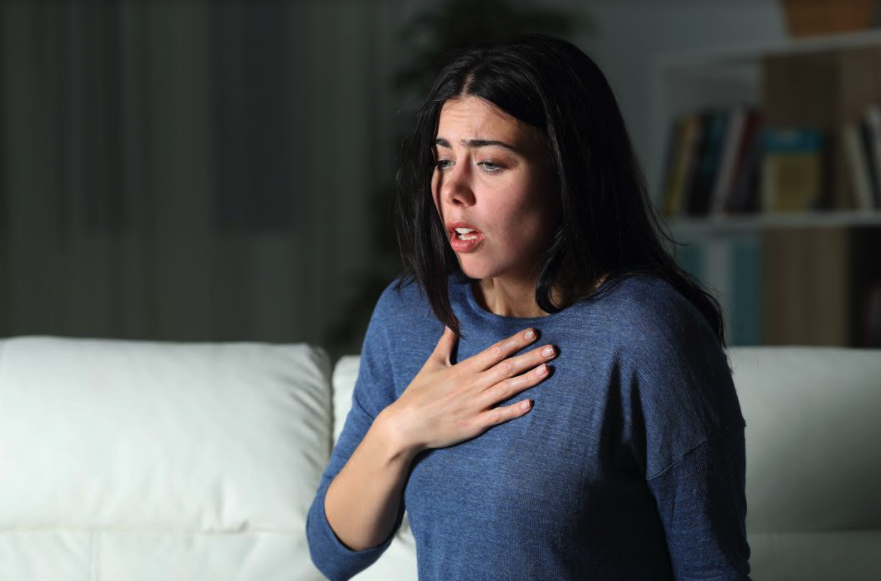
Some individuals might find themselves preoccupied with health concerns, possibly reviewing countless online sources on various health conditions and symptoms. Those who experience this type of concern might be experiencing health anxiety, defined as “a condition that causes healthy people to worry that they are sick—even when they have no symptoms, or minor symptoms like a scratchy throat” (Harvard Health Publishing, 2020). Health anxiety reportedly affects around 4% to 5% of people, but is believed by experts to impact twice that many people as a result of underreporting (Harvard Health Publishing, 2020).
This intense preoccupation with health concerns commonly appears in individuals with other mental health conditions, like anxiety disorder, depression, or PTSD (Harvard Health Publishing, 2020). While research in this field is still growing, some studies indicate a correlation between our health and our general outlook.
Here, we aim to share some findings regarding the individual’s self-rated health and its influence on physical health conditions, while additionally exploring relevant concepts for those interested in wellness coaching.
Analyzing the Scientific Research on Health Anxiety and Emotional Susceptibility
Some studies have been conducted to explore the link between health anxiety and physical health conditions. Although not much is scientifically known about disease development in individuals with health anxiety, a study in 2016 set out to expand the research in this field. Aiming to investigate links between health anxiety and ischaemic heart disease (IHD), the study analyzed 7052 participants with IHD during a 12-year follow-up period (Berge et al., 2016). The results showed that “6.1% of health anxiety cases developed IHD compared with 3.0% of non-cases” (Berge et al., 2016). After accounting for established cardiovascular risk factors, the study also revealed that there was a 70% increased risk of IHD among cases with health anxiety (Berge et al., 2016).

Those earning a wellness coach diploma might also benefit from learning about another study, which shares relevant findings on emotional susceptibility to health conditions. Around 334 participants with varying ages (from 18 to 54 years old) were voluntarily injected by the common cold virus and subsequently evaluated on how their emotional reactions affected host resistance. Positive emotions were expressed through happiness and feeling of being relaxed or pleased while negative emotions included anxiety, hostility, and depression (Cohen et al., 2003).
The results of this study found that “the tendency to experience positive emotions was associated with greater resistance to objectively verifiable colds” (Cohen et al., 2003). Positive emotions were also “associated with reporting fewer unfounded symptoms and [negative emotions] with reporting more” (Cohen et al., 2003). These findings indicate relevant connections between health anxiety (and what can be referred to as our own outlook or emotional response) and our physical health.
Understanding the Effects of Health Anxiety for Those Earning a Wellness Coach Diploma
Science has already proven that poor health is directly associated with stress (McEwen, 2006). However, the role that telomeres play can be of particular interest in this context. Discovered by Nobel Prize Winner, Elizabeth Blackburn, telomeres are part of our DNA (found at the end of chromosomes). This study attributes the length of these telomeres to cellular aging and longevity—showing that chronic psychological stress can shorten these telomeres (Epel et al., 2004). Knowing that psychological stress directly influences our physical health makes it all the more important to better understand the effect of health anxiety on our wellbeing.

Those who want to become a wellness coach in Vancouver can benefit from having some level of understanding about the potential effects of health anxiety on an individual’s overall health. By studying physical, spiritual, and emotional wellbeing, wellness coaches become better able to focus their wellness initiatives in a way that helps clients improve their personal outlook and, consequently, their wellbeing.
Are you interested in earning a wellness coach certification in Vancouver?
Contact Rhodes Wellness College for more information!
Works Cited:
Berge, L. I., Skogen, J. C., Sulo, G., Igland, J., Wilhelmsen, I., Vollset, S. E., Tell, G. S., & Knudsen, A. K. (2016). Health anxiety and risk of ischaemic heart disease: a prospective cohort study linking the Hordaland Health Study (HUSK) with the Cardiovascular Diseases in Norway (CVDNOR) project. BMJ open, 6(11), e012914. https://doi.org/10.1136/bmjopen-2016-012914
Cohen, S., Doyle, W. J., Turner, R. B., Alper, C. M., & Skoner, D. P. (2003). Emotional style and susceptibility to the common cold. Psychosomatic medicine, 65(4), 652–657. https://doi.org/10.1097/01.psy.0000077508.57784.da
Epel, E. S., Blackburn, E. H., Lin, J., Dhabhar, F. S., Adler, N. E., Morrow, J. D., & Cawthon, R. M. (2004). Accelerated telomere shortening in response to life stress. Proceedings of the National Academy of Sciences of the United States of America, 101(49), 17312–17315. https://doi.org/10.1073/pnas.0407162101
Harvard Health Publishing, (2020). Always worried about your health? You may be dealing with health anxiety disorder. Retrieved February 10, 20201, from https://www.health.harvard.edu/mind-and-mood/always-worried-about-your-health-you-may-be-dealing-with-health-anxiety-disorder#:~:text=Health%20anxiety%20is%20a%20condition,HIV%2C%20cancer%2C%20or%20dementia
McEwen B. S. (2006). Protective and damaging effects of stress mediators: central role of the brain. Dialogues in clinical neuroscience, 8(4), 367–381. https://doi.org/10.31887/DCNS.2006.8.4/bmcewen









